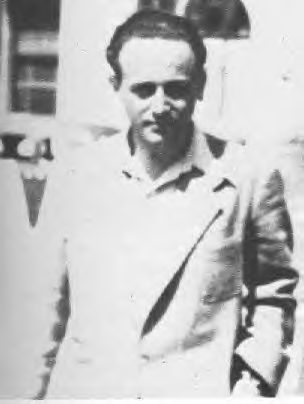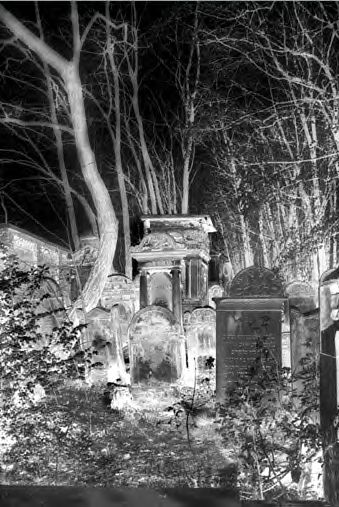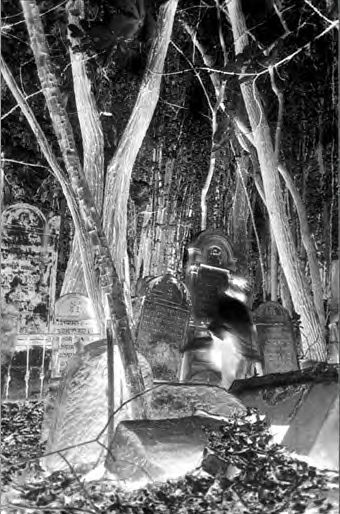             
|
|

|
THIS InstaPLANET PAGE IS DEDICATED TO THE REMEMBRANCE OF HOLOCAUST SURVIVOR PAUL CELAN (1920 - 1970)
|
 |
Paul Antschel - then Ancel, then Celan, an anagram adopted in 1947, when his first poems appeared in a Romanian periodical - was born into a Jewish family at Czernowitz in Bukovina, northern Romania, on 23 November 1920. He lost his mother and father overnight in a Nazi deportation, then spent nineteen months at forced labor, during which time his parents were killed in the camps. Among his various pursuits during difficult times were: Medical Student, Labor Camp Worker, Psychiatric Field Surgeon, and Translator.
After the war, a German-Speaking Jewish Exile in Paris, he married a French artist and had a son, taught at the Ecole Normale Superieure, translated forcefully from six languages, and wrote poetry that won him Germany's major literary prizes, ranking him with Hölderlin and Rilke.
But the trauma of the Holocaust stayed with him and severely afflicted him even as his creativity persisted. He took his own life in Paris by drowning in the Seine on 20 April 1970, at the age of 49.
.
Celan on Celan : "There's nothing in the world for which a poet will give up writing, not even when he is a Jew and the language of his poems is German."
" I have tried to write poetry in order to acquire a perspective of reality for myself."
|
|
THE HAUNTING LANGUAGE OF CELAN
|
|
.
POETRY is what gets lost in translation, Robert Frost once said, without explaining why it is that certain great poets get translated over and over again. With its fragmented words, multilingual puns and recondite allusions, the haunting verse of Paul Celan, arguably one of the greatest European poets of the postwar period, hovers on the edge of untranslatability; so writes M.M.Anderson of Columbia University.
Paul Celan wrote many haunting poems exploring the darker spiritual trials of life and interpersonal relationships. In his verse, he creates a unique compact style which fuses broken words and chopped syntax to produce a stark and mesmerizing musicality.
:: The InstaPLANET Cultural UNIVERSE presents yet another attempt, this one made by Ana Elsner, to bring the strangeness, dissonance and tension of Celan's original German writing into English. ::
CELAN himself made a Comment on 'The Effect of Auschwitz on Language' in his Bremen Prize acceptance speech:
''It, the language, remained, not lost, yes, in spite of everything. But it had to pass through its own answerlessness, pass through frightful muting, pass through the thousand darknesses of deathbringing speech. It passed through and gave back no words for that which happened; yet it passed through this happening. Passed through and could come to light again, 'enriched' by all this. ''
|
|

Photo Art by NARMI MICHEJDA, Warsaw, Poland
|
|
:: A Passage from the Poem 'Germanii' - "To Germany" ::
|
| |
|
|
Vstar' -- skazkami tumanila,
|
| |
|
|
Dnes' -- tankamini posla.
|
| |
|
|
- + - + - + - + - + - + - + - + - + - + -
|
| |
|
|
Engulfed half the map of the world,
|
| |
|
|
Once -- lulled us with tales,
|
| |
|
|
Now -- comes at us with tanks.
|
| |
|

Art Photo by NARMI Michejda, Warsaw - Poland
|
|
UNTITLED - from Die Gedichte aus dem Nachlass
|
|
Translation by Ana Elsner
:
Du suchst Zuflucht : / : beim unauflöslichen : / : Erb-stern -- sie wird dir : / : gewährt. Jetzt : / : überlebst du dein zweites : / : Leben
:
You seek Refuge : / : at the undisbandable : / : Heritage-star -- it is : / : granted. Now : / : you outlive your second : / : Life
:
|
|
|
Sieglos lebst du mit mir,
|
| |
|
|
unsre Seelen noch stehn, auf dem Unland, da
|
| |
|
|
singts. Singt es : / : im Abglanz
|
| |
|
|
dessen, der neben uns ging.
|
| |
|
|
daß es nicht zweimal wehe
|
| |
|
|
durch unser : / : offenes Haus.
|
| |
|
|
Bereft of Victory you live with me,
|
| |
|
|
small : / : and burdened.
|
| |
|
|
our Souls remain, on the Void, there
|
| |
|
|
does it sing. Sings : / : in Reflection
|
| |
|
|
of him, who walked beside us.
|
| |
|
|
Whether Cloud, or Star: we
|
| |
|
|
so that it won't twicemore blow
|
| |
|
|
through our : / : unsheltering House.
|
| |
|
|
|
|
|
|
|














